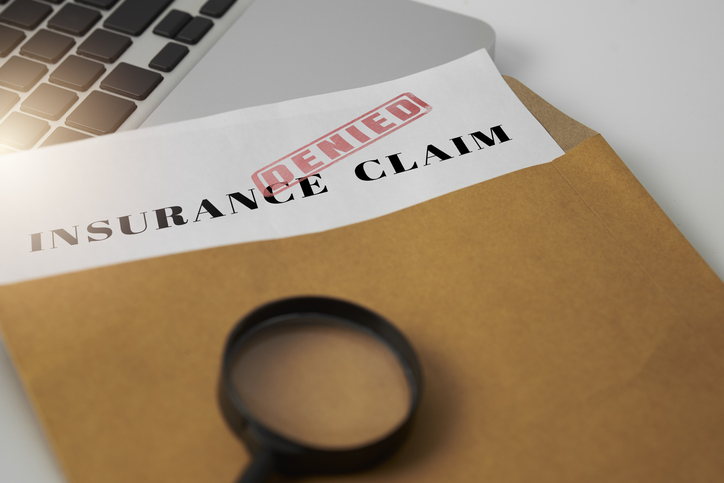Experiencing a fire can be devastating, and the aftermath often involves navigating the complex process of filing a fire insurance claim. Unfortunately, not all claims are approved, and policyholders may find their claims denied for various reasons. Understanding the reasons insurance companies deny fire claims can help you avoid common pitfalls and ensure your claim is processed smoothly. In this article, we’ll explore the top seven reasons your fire insurance claim might be denied and provide tips on how to avoid these issues.
1. Lack of Proper Documentation
Insufficient Evidence
One of the most common reasons insurance companies deny fire claims is the lack of proper documentation. Without sufficient evidence of the fire’s cause, the extent of the damage, and proof of ownership for the affected items, your claim is likely to be denied.
How to Avoid This Issue
To avoid denial due to insufficient documentation, it’s crucial to:
- Take photographs and videos of the damage immediately after the fire.
- Keep records of all correspondence with the insurance company.
- Maintain an inventory of your belongings, including receipts and appraisals.
2. Policy Exclusions
Understanding Your Coverage
Every insurance policy has specific exclusions, and understanding these exclusions is vital. Some common exclusions in fire insurance policies include intentional acts, neglect, and certain types of property.
How to Avoid This Issue
Read your policy thoroughly to understand what is covered and what is not. If you have questions, contact your insurance agent for clarification. Consider purchasing additional coverage if your standard policy does not cover certain risks.
3. Misrepresentation or Fraud
Accurate Information is Key
Insurance companies are vigilant about misrepresentation or fraud. If you provide inaccurate information during the application process or while filing a claim, your claim could be denied.
How to Avoid This Issue
Always provide honest and accurate information to your insurance company. Double-check your application and claim forms for errors. Transparency is crucial to building trust with your insurer.
4. Late Filing of the Claim
Timeliness Matters
Insurance policies often have strict timelines for filing claims. Delaying the filing of your fire insurance claim can result in denial, as insurers may argue that the delay has hindered their ability to investigate the claim properly.
How to Avoid This Issue
File your claim as soon as possible after the fire. Familiarize yourself with your policy’s deadlines and ensure you adhere to them. Prompt action demonstrates your commitment to resolving the issue.
5. Failure to Mitigate Damage
Prevent Further Damage
After a fire, it’s your responsibility to prevent further damage to your property. Failure to take reasonable steps to mitigate additional damage can lead to your fire insurance claim being denied.
How to Avoid This Issue
Secure your property and make necessary temporary repairs to prevent further damage. Keep receipts for any expenses incurred in mitigating the damage, as these may be reimbursable.
6. Non-Payment of Premiums
Keep Your Policy Active
If you fall behind on your insurance premium payments, your policy could lapse, resulting in the denial of any subsequent claims.
How to Avoid This Issue
Set up automatic payments or reminders to ensure your premiums are paid on time. Regularly review your policy to confirm it is active and in good standing.
7. Insufficient Coverage
Adequate Insurance
Sometimes, policyholders find that their insurance coverage is insufficient to cover the full extent of the fire damage. This can happen if the policy limits are too low or if certain items are not covered.
How to Avoid This Issue
Review your insurance policy regularly to ensure you have adequate coverage. Update your policy as needed to reflect any changes in your property or possessions. Consider increasing your coverage limits if necessary.
Seek Professional Assistance
Fire Damage Claim
If your fire damage claim is denied despite your best efforts, it may be time to seek professional assistance. Public adjusters, such as Care Public Adjusters, specialize in helping policyholders navigate the claims process and can advocate on your behalf to ensure a fair settlement.
Fire Damage Legal Liabilities
In some cases, the denial of a fire insurance claim may involve legal complexities. Understanding fire damage legal liabilities is crucial, as it can affect the outcome of your claim. Consulting with a property damage lawyer can provide valuable insights and help you address any legal issues that may arise.
File a Commercial Fire Damage Claim
For business owners, filing a commercial fire damage claim can be particularly challenging due to the scale of the damage and the potential impact on business operations. Ensuring that you have comprehensive documentation and understanding your policy’s specifics are vital steps in successfully filing a commercial fire damage claim.
Conclusion
Navigating the complexities of a fire damage claim can be challenging, but understanding the reasons insurance companies deny fire claims can help you avoid common mistakes. By maintaining proper documentation, understanding your policy, providing accurate information, filing claims promptly, mitigating damage, paying premiums on time, and ensuring sufficient coverage, you can increase the likelihood of a successful claim.
If your fire insurance claim is denied, don’t hesitate to seek assistance from a professional. Care public adjusters or a property damage lawyer can help you navigate the appeals process and work toward a fair resolution. Remember, being proactive and informed is the key to protecting your property and securing the compensation you deserve.
Read more about Understanding What to Do If Insurance Denies Roof Claim

